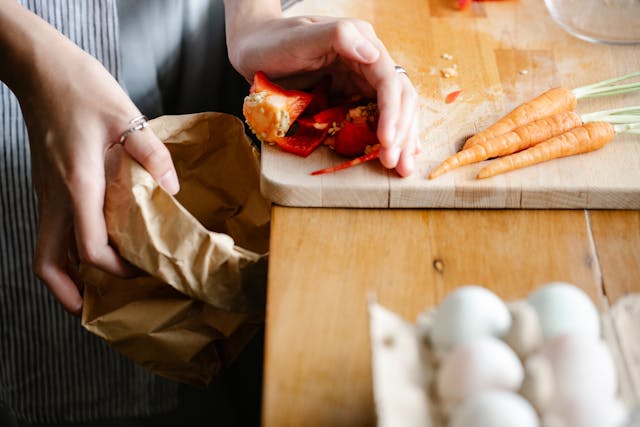Summer is in full swing, which means beach picnics, backyard barbecues and, unfortunately, food waste. With all the outdoor parties and fresh produce, it’s easy for food to become leftovers or end up in the trash. Discover five practical strategies to maximize your leftovers and minimize your environmental footprint.
Plan meals before shopping
Meal planning helps reduce your trips to the grocery store and stay on budget. Make a list of everything you need to do each week so you don’t have to wander around the grocery store. Here are some meal prep tips:
- Make menu: Ask family for suggestions, stick to tried and tested recipes or look online for inspiration.
- List everything: Create a shopping list with the ingredients you need to make the recipe. This is also a great time to replenish other household items.
- Go shopping: Search ads for local grocery stores to get the best deals.
If you’re just starting out with your plan, you should prepare enough meals for two to three days a week.
Refresh leftovers
You probably have some containers of leftover food in your refrigerator that you’re not sure what to do with, like extra roasted chicken or yesterday’s pizza. Knowing how to upgrade your food can be challenging, especially if no one wants to eat it anymore. Luckily, there are some ways to enjoy your leftovers:
- Make a salad: Chop cooked meat, hard-boiled eggs and roasted vegetables. Add herbs and spices to enhance the flavor.
- Make fried rice: This Asian dish is perfect for leftover rice. Toss any vegetables you have on hand, such as carrots and peas, into a wok or pan and combine. Push the vegetables to one side and crack an egg in the center. Mix everything together and add the remaining rice.
- Make the sandwich: Sandwiches are an easy way to use leftover meats, vegetables, and spreads. Use leftover chicken, roast beef or turkey to make cold-cut sandwiches or wraps.
freeze your food
Your refrigerator is your best friend this summer. Use it to store fruits, vegetables, cheese, bread and leftovers to reduce food waste. You can make smoothies by keeping chopped bananas, peaches, plums, tomatoes, and cucumbers in the refrigerator. Seal them in a bag and place them in the freezer with a temperature range of -20 to 55 degrees Fahrenheit to keep them fresher longer.
When freezing small baked goods such as cookies, remove as much air as possible before placing them in the bag.
Compost leftover food
Composting is a sustainable way to nourish plants and soil. With each person generating approximately 4.51 pounds of municipal solid waste (MSW) every day, implementing this environmentally friendly activity can help you contribute to a healthier planet. If you have a yard, set up an outdoor composter; if you live in a smaller space, invest in a countertop model.
Develop good food storage habits
Use produce storage bags or containers with small ventilation holes to prevent the risk of mold and moisture buildup. Avoid storing raw and cooked foods together to avoid contamination, which could lead to poisoning. Remember to place raw meat under cooked food to prevent juices from dripping onto leftovers.
Why is it important to reduce food waste?
By 2022, more than 1 billion tons of food will be wasted, but one-third of the world’s population faces food insecurity. This waste also threatens the environment, causing greenhouse gas emissions and loss of biodiversity. Solving this global problem this summer means taking a small step towards a more sustainable future.
Waste less, save more
Remember, every time you throw food in the trash, your hard-earned money is wasted. Adopting these sustainable strategies can help reduce waste, save money, and contribute to a greener future.

